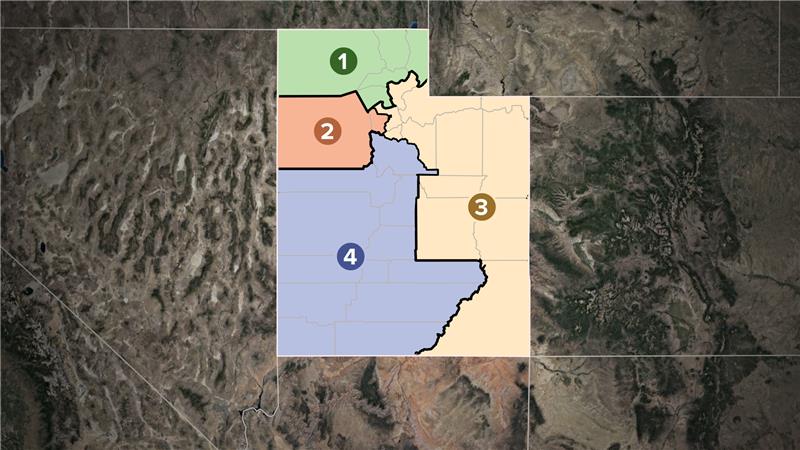SALT LAKE CITY — The plaintiffs in the lawsuit over independent redistricting are going back to court, asking a judge to grant an injunction, blocking a new law the Utah State Legislature passed in special session from going into effect.
"Once again, Defendants had an opportunity to follow Proposition 4, and once again Defendants have chosen to undermine it instead," wrote David Reymann, the attorney for the League of Women Voters of Utah and Mormon Women for Ethical Government, in the filing obtained by FOX 13 News.
Reymann wrote that Senate Bill 1011 impairs the anti-gerrymandering goal of Proposition 4, the citizen ballot initiative for independent redistricting that voters approved in 2018. When the Utah State Legislature overrode Prop. 4 and replaced it with a "compromise" bill, the League and MWEG sued. A judge sided with them and threw out the legislature's congressional map, ordering them to draw new boundaries.
On Monday, the legislature met in special session and adopted a new map. They also passed Sen. Brady Brammer's bill that imposed three political tests to determine if a redistricting map is fair. Critics accused the bill of tampering with Prop. 4.
Utah Legislature passes new congressional map in special session:
Sen. Brammer, R-Highland, has insisted that it is fair and his bill would withstand legal scrutiny. The plaintiffs wrote in their request for an injunction that it does the opposite.
"Instead of the 'best' tests that yield meaningful results for Utah, SB1011 mandates the exclusive use of three cherry-picked statistical tests—partisan bias, mean-median difference, and a flawed ensemble analysis—that cannot detect partisan favoritism in Utah and yield false, irrational results privileging maps favoring Republican voters and disfavoring Democratic voters," Reymann wrote. "SB1011 also restricts the ability of courts to conduct effective judicial review. Whereas Proposition 4 sought to eliminate partisan gerrymandering, SB1011’s standards effectively mandate the practice and make it impossible to police as voters intended."
After the legislature passed a new congressional map and SB1011, their attorneys notified the judge and also insisted it was within their power to make changes to the redistricting process.
"This Court’s August 25, 2025, order enjoining the 2021 Plan also stated that 'the legislature
retains discretion in determining what judicial standards are applicable and they retain discretion to
determine the ‘best available data and scientific and statistical models’ to use in evaluating redistricting
plans for compliance with state and federal law and the Proposition 4 redistricting standards,'" wrote Tyler Green, the legislature's attorney.
"Defendants therefore give notice that today the Utah Legislature passed S.B. 1011, amending Utah Code ... and determining and defining applicable 'judicial standards and the best available data and scientific and statistical methods' for evaluating compliance with state and federal redistricting law, including Proposition 4. Governor Cox has signed S.B. 1011 into law."
Court records show no hearing has been scheduled on the request for an injunction. Late Wednesday, the legislature responded to the injunction request.
"Plaintiffs’ couch their motion as one for a preliminary injunction, but they want this Court to resolve it in time to inform its decision on the map the Legislature adopted on October 6. If the Court agrees with Plaintiffs and grants relief, that relief will in effect not be preliminary but permanent, given Plaintiffs’ prior arguments that no additional redistricting can occur before Utah receives the 2030 U.S. Census results," Green wrote.
A hearing before 3rd District Court Judge Dianna Gibson on whether she will adopt the map proposed by the legislature will be held later this month.
Read the plaintiff's court filing here:
Read the legislature's court filing here:




